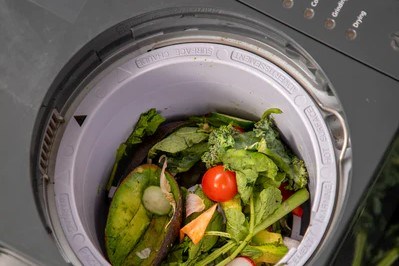There are only a handful of FoodCycler machines remaining for those who want to participate in a new pilot program that will provide an alternative to traditional composting through waste diversion technology.
The town has almost hit the one-month mark of the pilot program and so far, those participating have expressed positive feedback.
"We are almost out of units, we have about 10 left," said Travis Rob, manager of operations and facilities for the Town of Fort Frances. "So people are running out of time if they do want to get involved in the pilot project at the reduced cost."
Rob said he was interested when Food Cycle Science reached out to him about the project because the town had been trying to promote recycling and composting for years.
"I thought this was a great opportunity to try something different," he said.
A FoodCycler is a machine that reduces food waste and volume by up to 90 per cent by turning it into odorless and nutrient-rich soil additive that can be used as a fertilizer, according to the company. Only a total of 200 machines at a discounted cost were available in this pilot program.
In exchange for receiving new waste diversion technology for a discounted cost of $175—rather than the regular price of $499—households are asked to track how many “cycles” they run each week.
“We do have composters that the town purchased years and years and years ago, and we do sell them,” Rob said. “But that hasn’t been overly successful in terms of getting a lot of uptake from the community.”
He noted a few potential reasons why some residents in the community were not composting, such as lack of interest or difficulties depending on where the resident lived in town.
“So this is a great alternative, I thought, to that program for people that don’t or can’t, whatever the case may be, do a traditional compost bin.”
From the town’s perspective, the pilot program has multiple benefits, promoting waste diversion, pairing well with recycling programs, and cutting down on the amount of food waste going to the Fort Frances landfill site, which is "coming up to the end of its life," Rob says.
The town has started the process to expand the landfill, but it will be a lengthy and costly process.
"So, if we can do anything to kind of help prolong the life of that landfill site, that’s great news," Rob said.
Furthermore, Rob noted that the FoodCycler is beneficial not only for the municipality, but for the environment because food waste is a large contributor to the production of methane gas during decomposition in landfills. “Pulling some of this material out of the landfill site and using it in a different fashion is great for a landfill site but also for the environment.”
At the end of the 12-week pilot program, participants will be asked to fill out an exit survey to provide their review of the program and any feedback they might have.
"We’re going to ask things like, ‘How often did you use this unit? How many people are in your household?’ So that we can look at what the expected diversion rate would be from a large scale compost program," Rob said.
"That data will give us an idea of how much waste comes into our landfill site, how much is attributed solely to food waste products.
He said that the data collected at the end of the pilot program will also help the town evaluate the feasibility of future waste diversion programs, whether it is similar to this FoodCycler program in potential agreements for more FoodCycle units, or something entirely different. “It’s just good data that we can use to understand what possibilities are out there.”
“I’ve gotten a lot of very positive feedback from the community, I also bought one myself and I absolutely love it. It’s great. I got a couple young kids so ours runs every single day. And when it’s garbage day, my bin is basically empty, and you don’t have the smell and all the other pieces that go along with it.”
“It’s unique, it’s different. It’s something that I’ve been kind of watching in the market but wasn’t really sure where it was going to go. So it was kind of cool to be part of that R&D that’s looking at this technology. And what its future looks like.”
“I can’t wait to see what the final report says in terms of what sort of diversion we could achieve in and around Fort Frances. There’s more stuff to come for sure.”
The FoodCycler pilot program began this year on October 24 and will run for 12 weeks ending on January 16, 2023.
Local Journalism Initiative/Fort Frances Times
